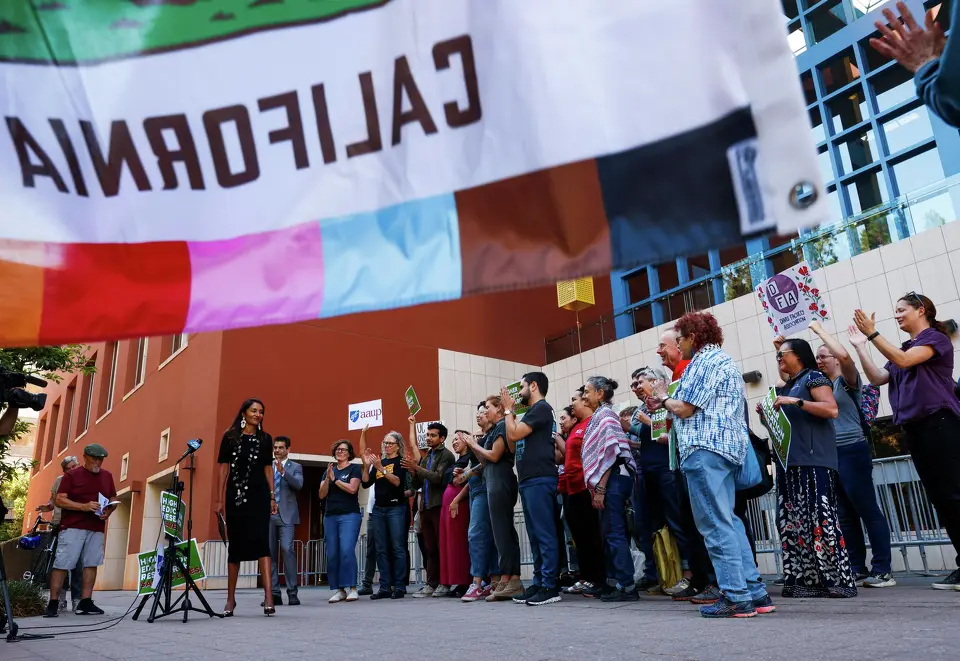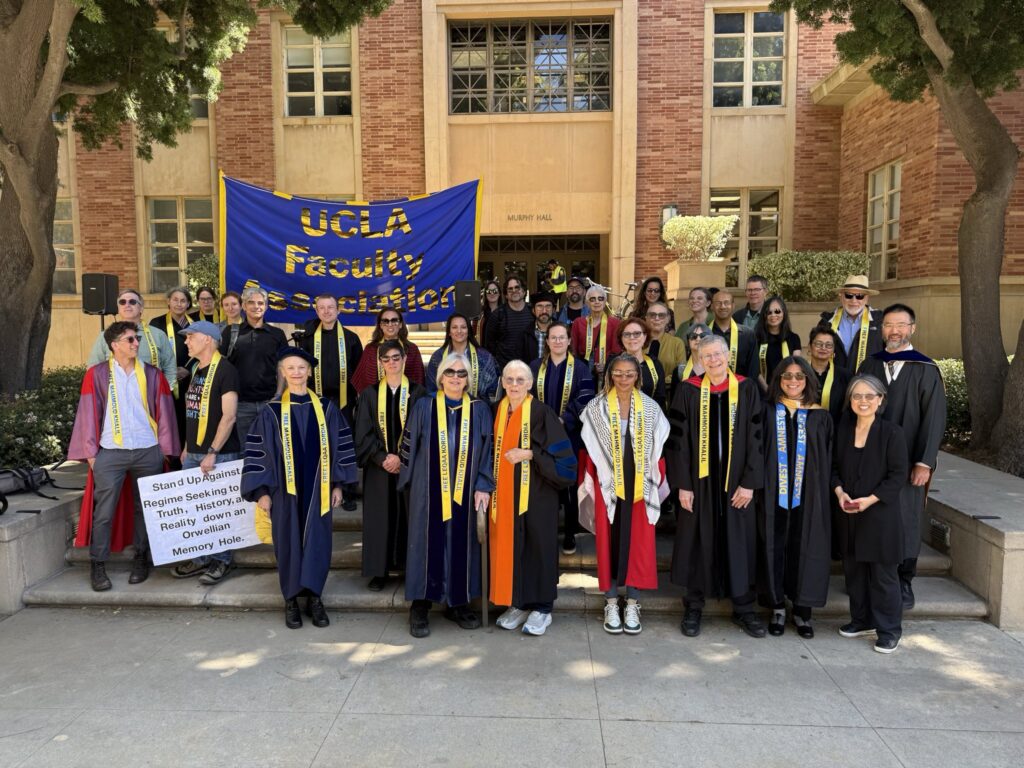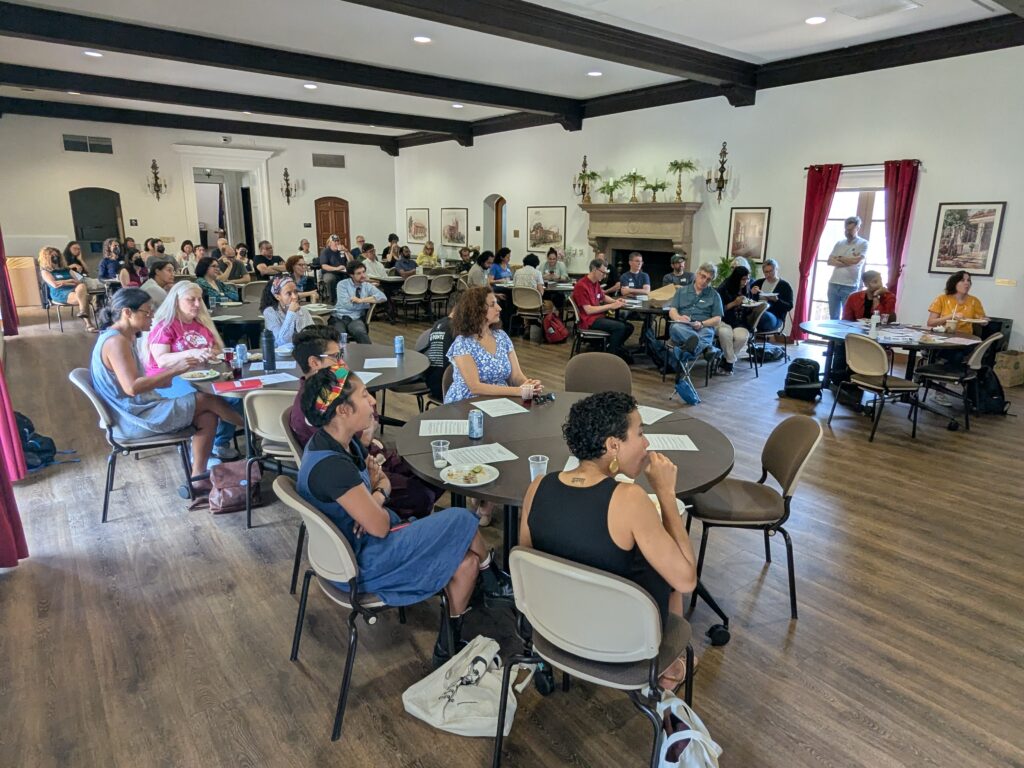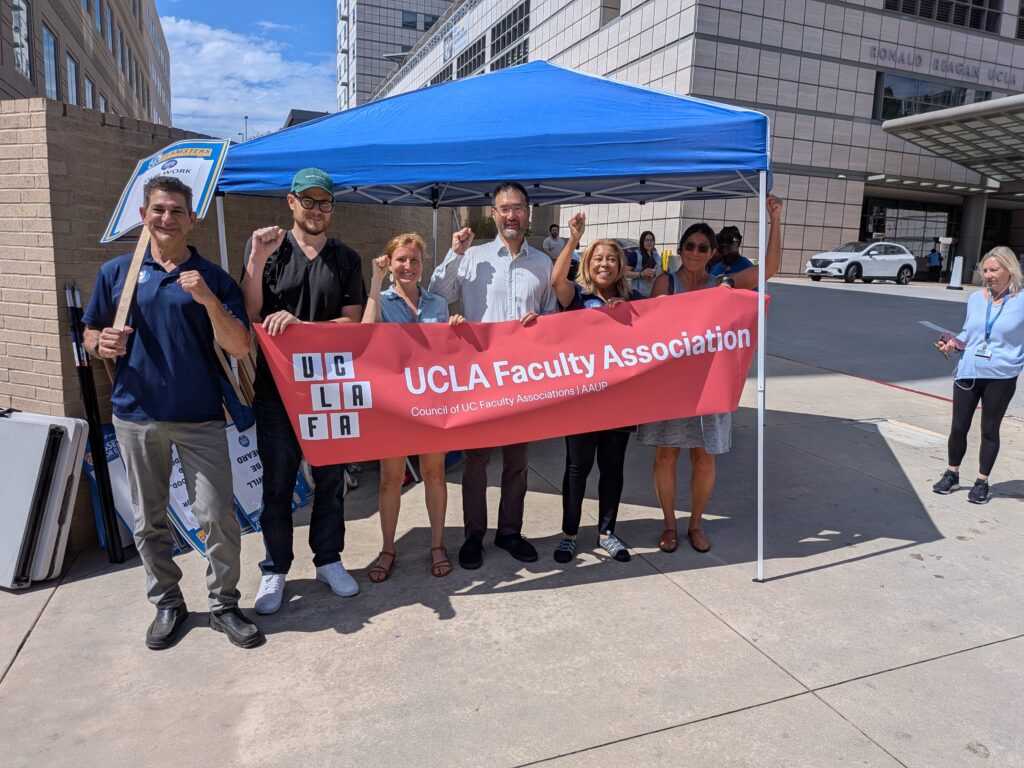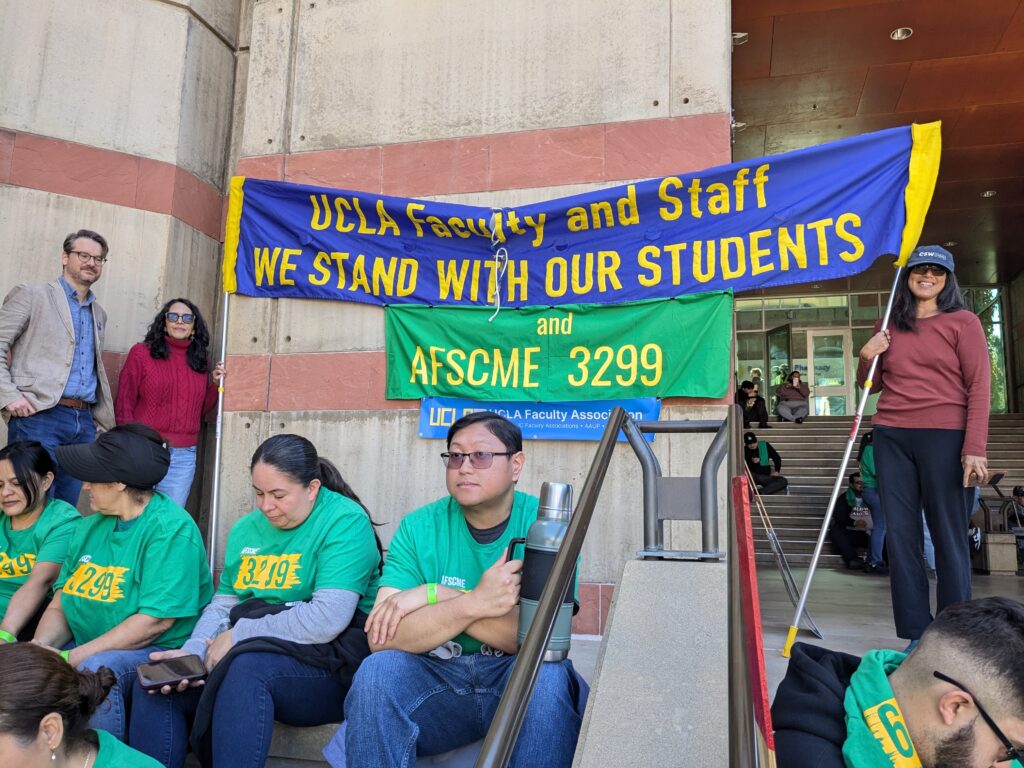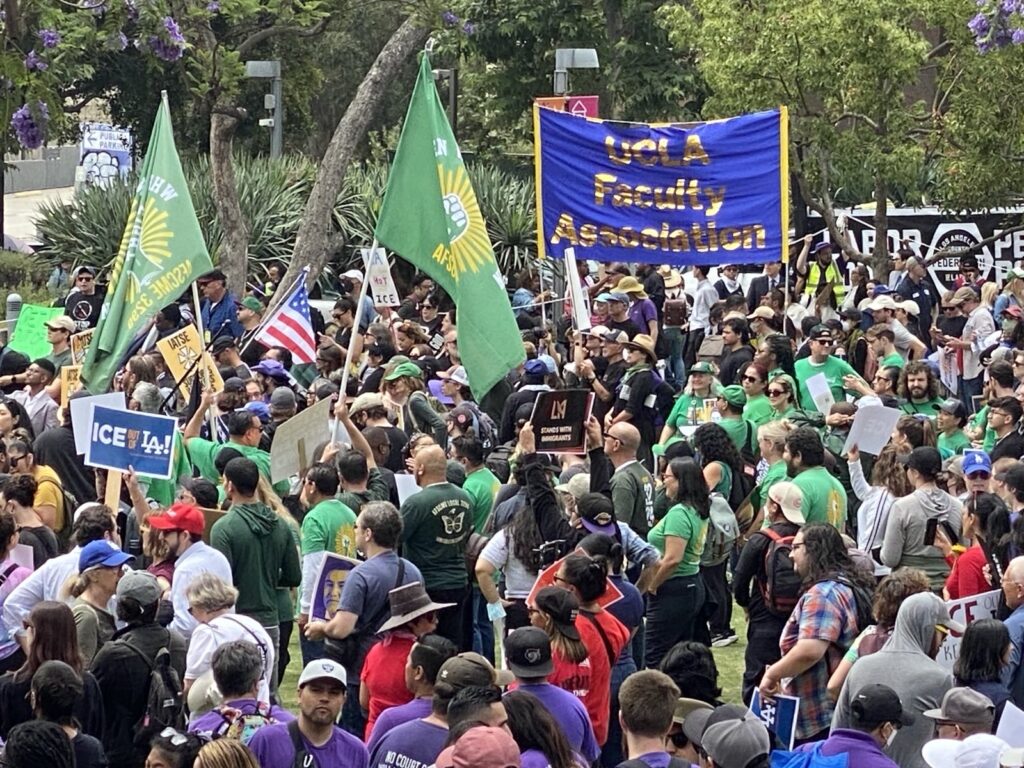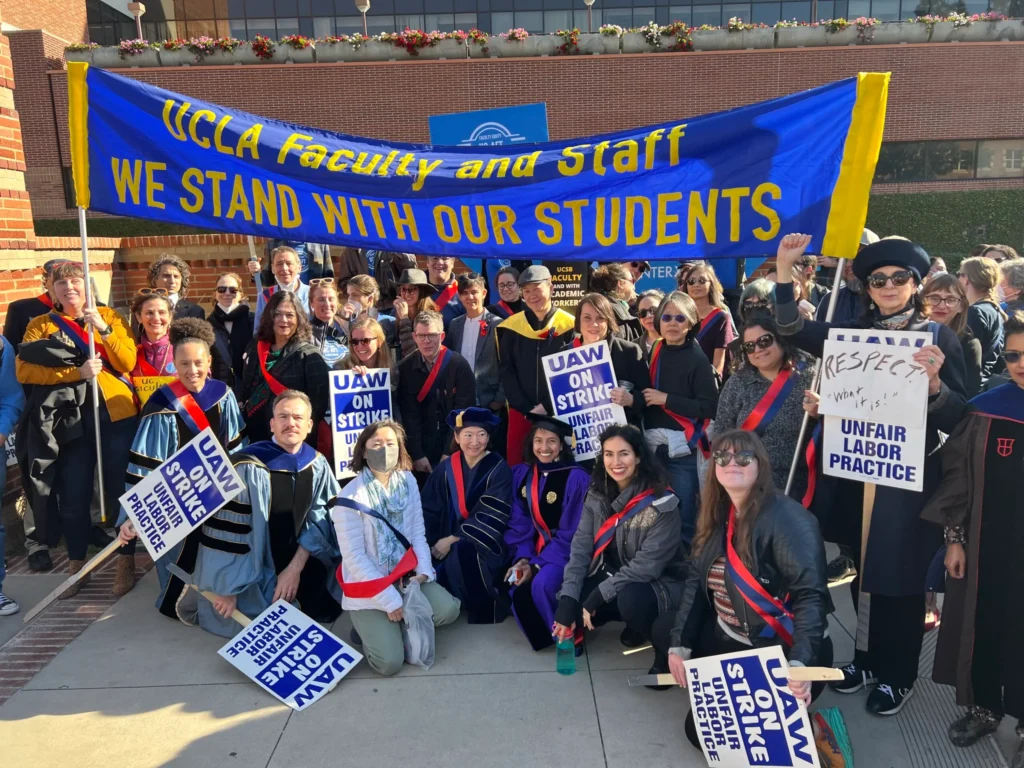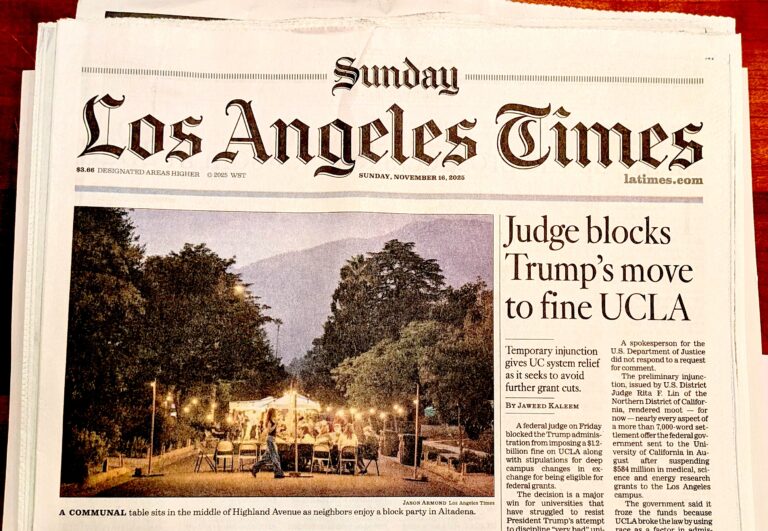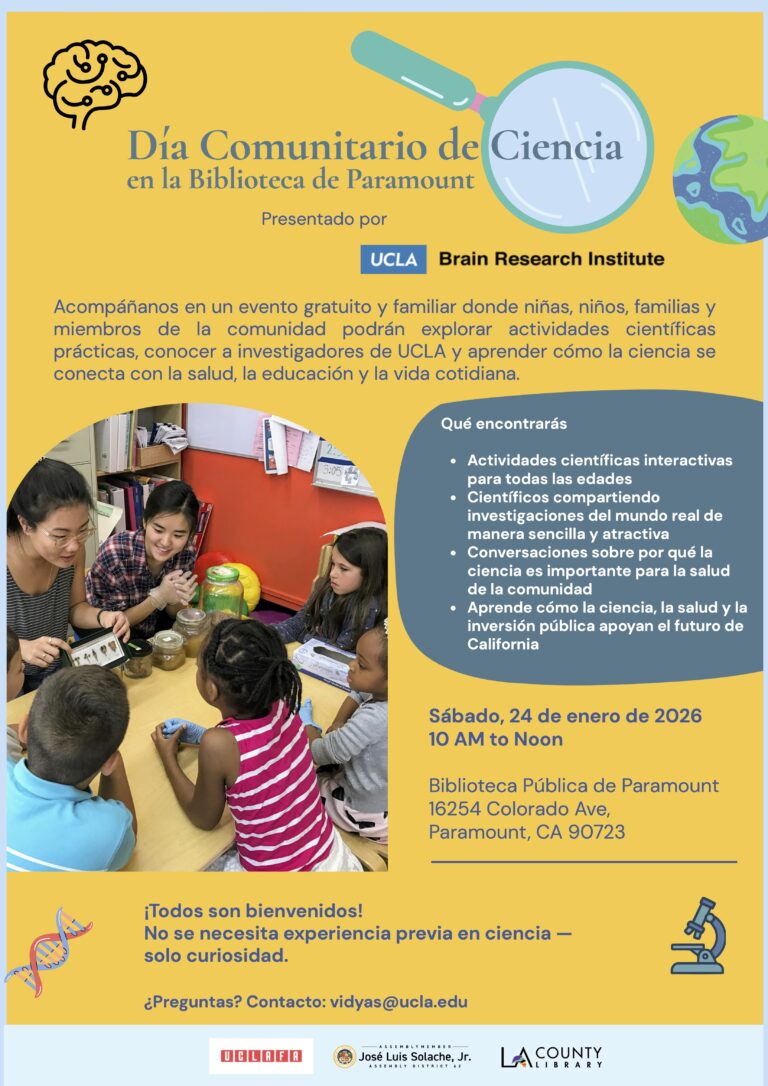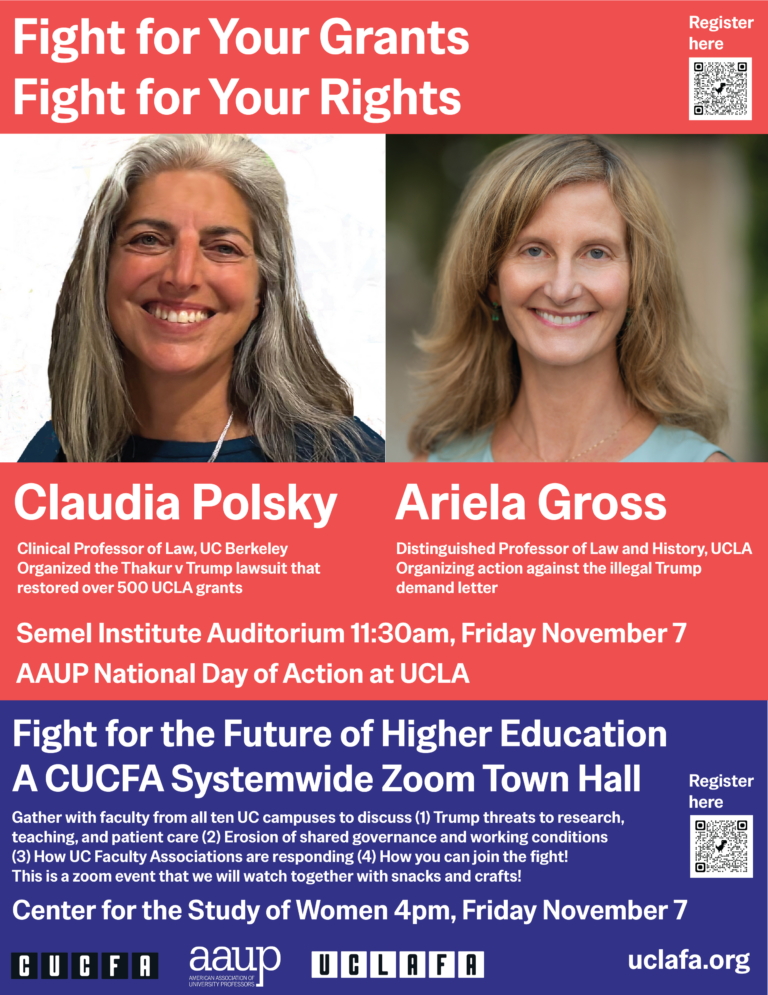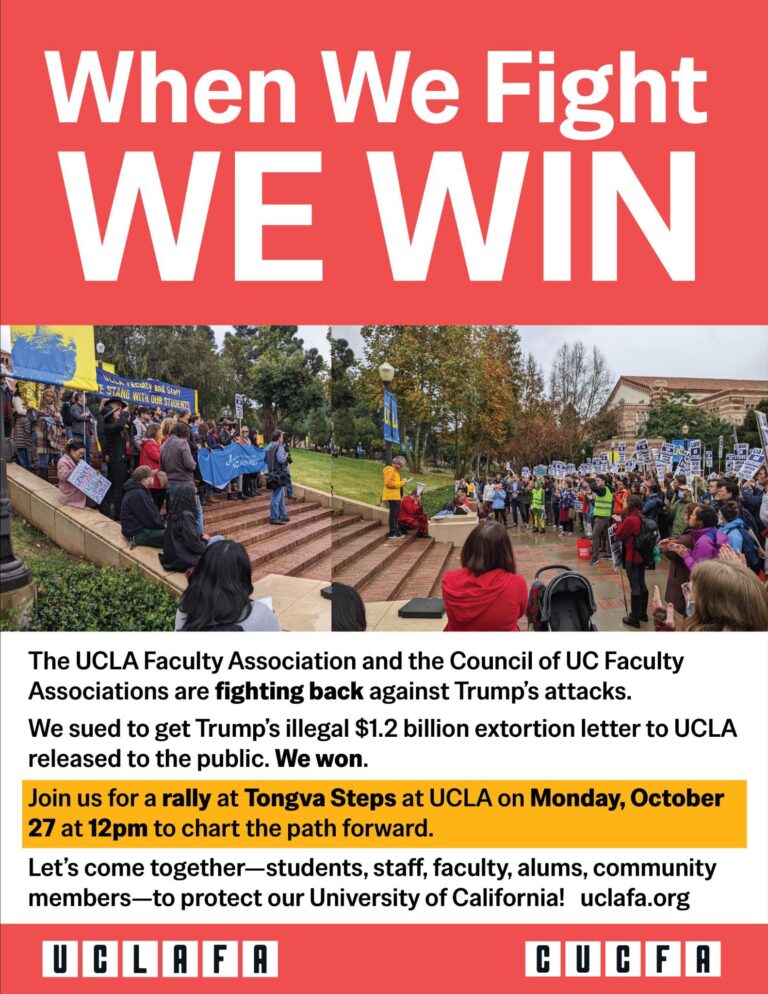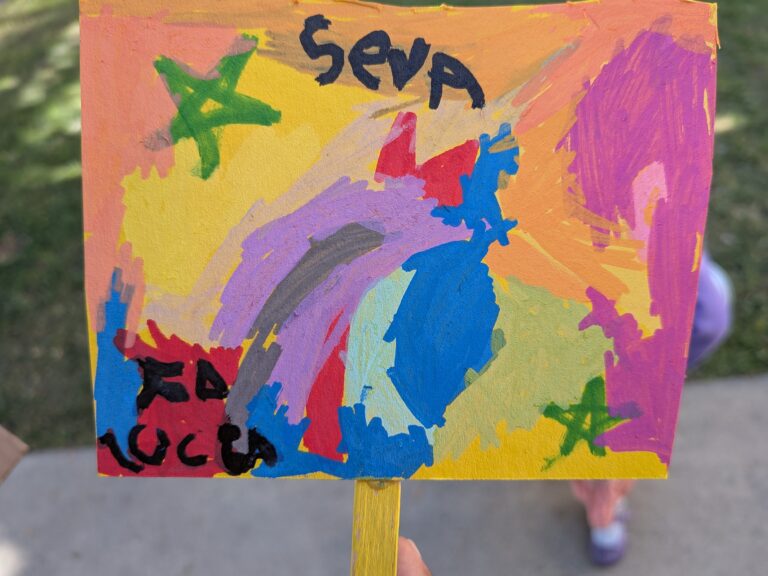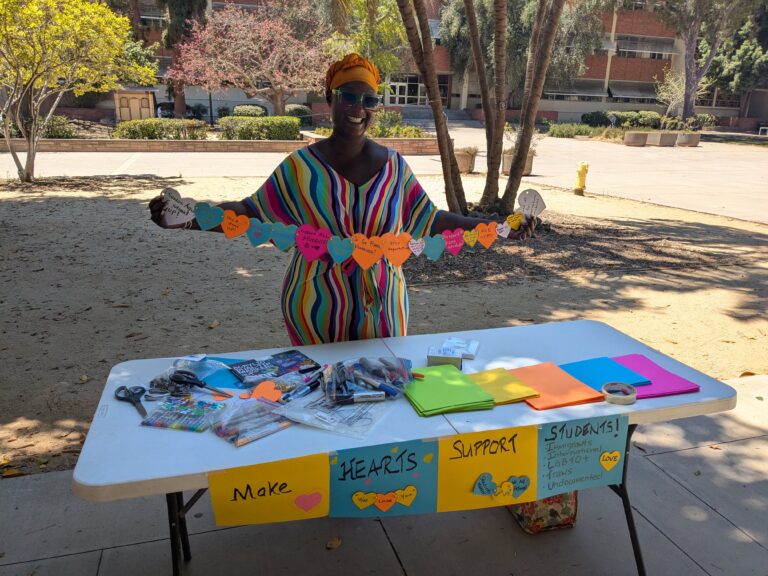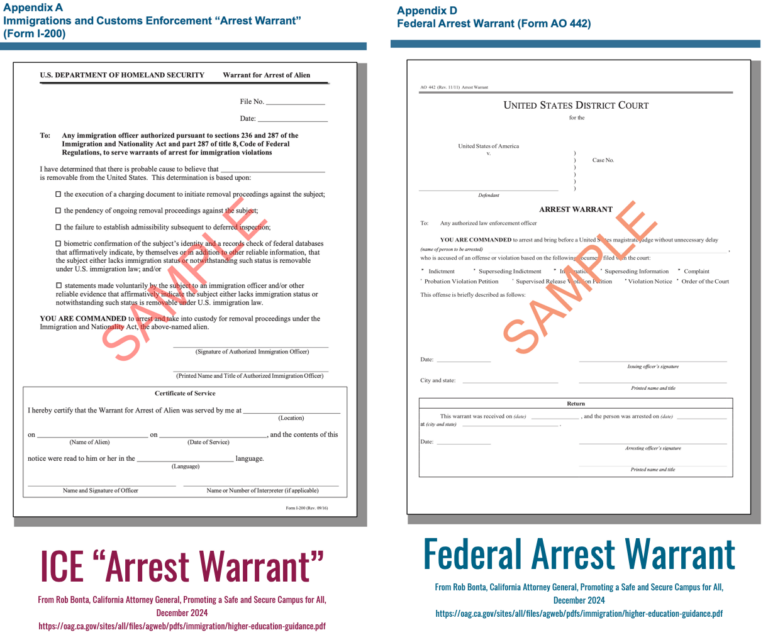We are the UCLA Faculty Association (UCLA FA), an independent body since 1979.
We represent UCLA faculty on employment and academic freedom issues and advocate for a vibrant and well-funded system of public higher education in California.
We coordinate research and advocacy efforts with faculty on other UC campuses through our affiliation with the Council of UC Faculty Associations (CUCFA).
Documents
Timeline of our successful legal efforts to restore suspended research grants
Letter by 187 UC law faculty urging the UC Regents to resist Trump’s unlawful demands, November 2025
Trump “demand letter” to UCLA, released to the public as a result of a successful lawsuit by CUCFA against the UC
Letters sent to UCLA by the National Science Foundation, July 30 and August 1, 2025
Statistics on suspended federal grants to UCLA researchers (by department and adjusted for department size)
Suggested guidance
What should you do if an Immigration and Customs Enforcement (ICE) agent comes to campus?
Know Your Rights for International Students and Faculty, notes by Ahilan Arulanantham (more notes here)
Guide to Information Technology and Privacy for UCLA faculty
Professional liability insurance available for Faculty Association members through AFT (more notes here)
Calendar of events
Actions
-
Fund California Science
Please consider signing on to an open letter in support of the California Science and Health Research Bond Act. This bill places a bond on the 2026 ballot to create and fund the California Foundation for Science and Health Research, which would award grants and make loans to public or private research companies, universities, institutes, and health care organizations in the State of California for scientific research and development.
-
Faculty action saves President’s Postdoctoral Fellowship Program (PPFP)
On November 21, 2025, UC President Milliken reversed course and pledged to continue funding the hiring incentive for the Presidential Postdocs Fellowship Program. This represents a significant faculty organizing win. The UCLA Faculty Association thanks the thousands of faculty who signed letters, sent emails, and spread the word quickly!
-
Stop suppressing our free speech rights
On November 19, 2025, four UCLA undergraduate students were arrested by UCLA police while picketing in support of AFSCME 3299’s protected strike. On November 20, 2025, two UCLA graduate student members of UAW 4811 were detained by university police on Wednesday at a union action about contract violations and labor cuts. The UCLA Faculty Association joined with AFSCME 3299, UAW 4811, Teamsters Local 2010, UPTE CWA 9119, UCLA Chapter of…
-
Judge Grants Preliminary Injunction in AAUP vs. Trump Case
On November 14, 2025, the U.S. District Court in the Northern District of California granted the plaintiffs in AAUP v. Trump, including UCLA-FA, a preliminary injunction! By temporary court order, the federal government is now prohibited from holding federal funds hostage in an effort to coerce the University of California into imposing policies that would violate our first amendment rights. This order means that the Trump administration is now explicitly prohibited from doing…
-
Academic Senate unanimously passes resolution to request UCLA administrators share Trump “demand letter”
On September 30, 2025, we spearheaded a special meeting of the Legislative Assembly of the UCLA Academic Senate, which unanimously passed a resolution, 116 votes in favor and zero opposed, to request that Chancellor Julio Frenk share the Trump “demand letter” with the public.
-
We sued the Trump administration to protect the UC, our rights, and our values.
On September 16, a coalition of 21 groups including the UCLA Faculty Association filed suit to stop “the unlawful threat of federal funding cuts not authorized by law to illegally coerce the UC into suppressing free speech and academic freedom rights, implementing harmful federal policies on the Trump administration’s behalf and otherwise violating the constitutional and state law rights of UC faculty, students, academic employees, and staff employees.” Our lawsuit was covered by the…
Events
-
Community Science Day at the Paramount Library
On January 24, 2025, from 10am to noon, the UCLA Brain Research Institute, the UCLA Faculty Association, the Paramount Library, and the office of Assemblymember José Luis Solache are sponsoring a Community Science Day at the Paramount Library. We are looking forward to reaching out to the community to talk about all the exciting science happening at UCLA! We are also hoping to build support for SB 895, principally co-authored by Assemblymember Solache, which will establish the California Foundation for Science and Health Research.
-
Rally with UC Unbowed
On November 18, 2025 during the meeting of the Regents on campus, we joined UC Unbowed, a new organization of UC alumni, to call on the Regents to not cave to the demands of the Trump administration.
-
AAUP National Day of Action, November 7
On November 7, 2025, for the AAUP National Day of Action, we sponsored a panel discussion with Claudia Polsky (UC Berkeley Law) and Ariela Gross (UCLA Law) on the landmark Thakur v. Trump victory restoring $580 million in federal research grants to UCLA researchers and the next steps in the AAUP v. Trump case. Later that day we participated in the CUCFA Systemwide Town Hall, Fight for the Future of Higher Education, to discuss Trump’s threats to research, DEI, and healthcare, the erosion of shared governance, and how we can act together.
-
Rally to mark our successful legal effort to make the Trump “demand letter” public
On October 12, 2025, we held a rally on the Tongva Steps to strategize future efforts given our successful legal effort to get the UC to release the Trump “demand letter.” The UC had gone to extensive efforts, appealing all the way to the Supreme Court of California, to prevent it from being released to the public.
-
Welcome Back All Members meeting, October 12
On October 12, 2025 we had a Welcome Back All Members meeting at Mira Hershey Hall on the UCLA campus, with roughly 70 members in attendance.
-
Help build our Chain of Hearts every Thursday at 1pm in the Court of Sciences.
Since June we have been making a Chain of Hearts every Thursday at 1pm in the Court of Sciences so all of us can show our support for international, LGBTQ+, undocumented, immigrant, and trans students and scholars. Please join us!
Resources
-
Trump demand letter finally released
Today, as the result of a lawsuit brought by the UCLA Faculty Association and the Council of University of California Faculty Associations under the California Public Records Act, the Supreme Court of California ordered the release of the Trump administration’s demand letter to UCLA. Here it is.
-
Falling Short of Sanctuary
Noah Zatz on the Law School faculty prepared the document Falling Short of Sanctuary: Understanding the Limitations of UC Protections for Immigrant and International Community Members to explain how the UC has a very incomplete conception of sanctuary, which focuses on UCPD and leaves out the many other ways UC can cooperate with ICE and the Trump administration. The bare minimum would be for the UC to refuse voluntary complicity, but the University of California (UC) has not adopted this basic principle. An accompanying FAQ is also available.
-
What should you do if an Immigration and Customs Enforcement (ICE) agent comes to campus?
We have some guidelines to share.
-
PERB issues complaint against UC, finding merit in CUCFA ULP charge
Last fall, the UCLA FA spearheaded a broader Council of UC Faculty Associations effort to submit an Unfair Labor Practice charge regarding the UC’s handling of protest and strike activity on campus last spring. Now, the Public Employee Relations Board (PERB) has issued a complaint against the UC, finding merit in our charges that UC violated our labor rights and taking them to the next step in the legal process! This is a significant win in the fight for faculty rights on UC campuses. Stay tuned for more updates on how we will use this victory to protect our rights…
-
UCLA-FA Statement on the Anniversary of the April 30 Attack on Our Students
Statement of the UCLA Faculty Association on the Anniversary of the Violent Dissolution of the Palestine Solidarity Encampment Just over one year ago, a group of student anti-war activists erected a Palestine Solidarity Encampment (PSE) on Royce Quad, with the goal of bringing attention to the role of UCLA in the ongoing genocide in Gaza. In the style of previous, storied protests, students demanded divestment of UC funds from the war and war profiteers. A few days later on April 30, 2024, UCLA posted signs declaring the PSE unlawful; a few hours later, outside agitators began an attack on the…
-
Twenty-four professors of constitutional law released the memo “DEI Programs Are Lawful Under Federal Civil Rights Laws and Supreme Court Precedent.”
Twenty-four professors of constitutional law released the memo “DEI Programs Are Lawful Under Federal Civil Rights Laws and Supreme Court Precedent.” The authors of the memo include four of our colleagues at the UCLA School of Law. Listen to our colleague Ariela Gross interviewed on KPBS.
Meet our members
The UCLA Faculty Association is proud to have members in all disciplines and all fields on campus. Here are some interviews of our members so you can get to know us better!
Press coverage
“No deal, no defiance: UC’s Trump fight grinds on, leaving UCLA in limbo.” Politico, December 28, 2025.
“Times Investigation: Ex-Trump DOJ lawyers say ‘fraudulent’ UC antisemitism probes led them to quit.” Los Angeles Times, December 13, 2025.
“The UC faculty just won a big court victory over Trump. But why didn’t UC join their lawsuit?” Los Angeles Times, November 21, 2025.
“Proposed settlement between feds and UCLA is a master class in extortion.” Los Angeles Times, November 2, 2025.

